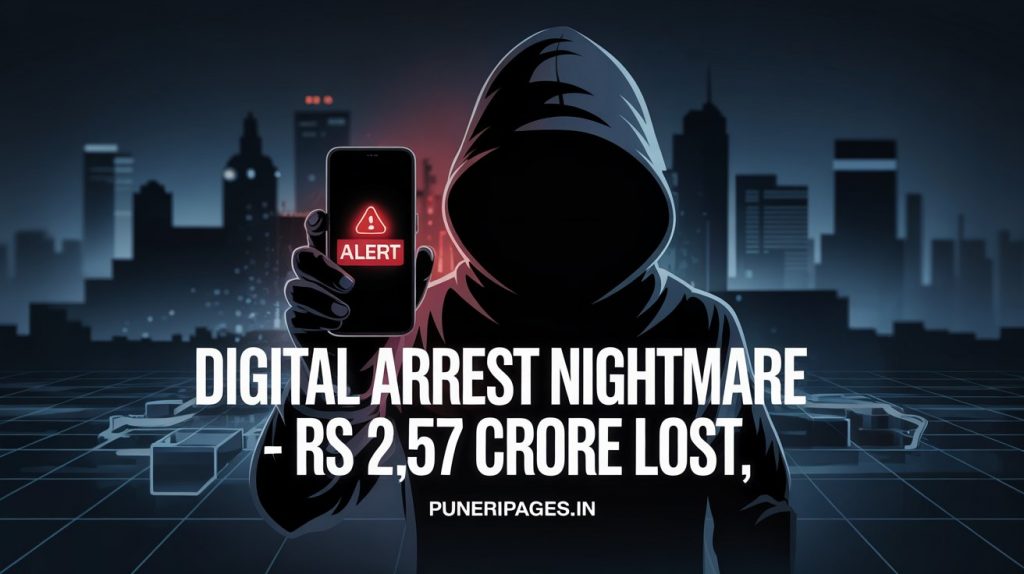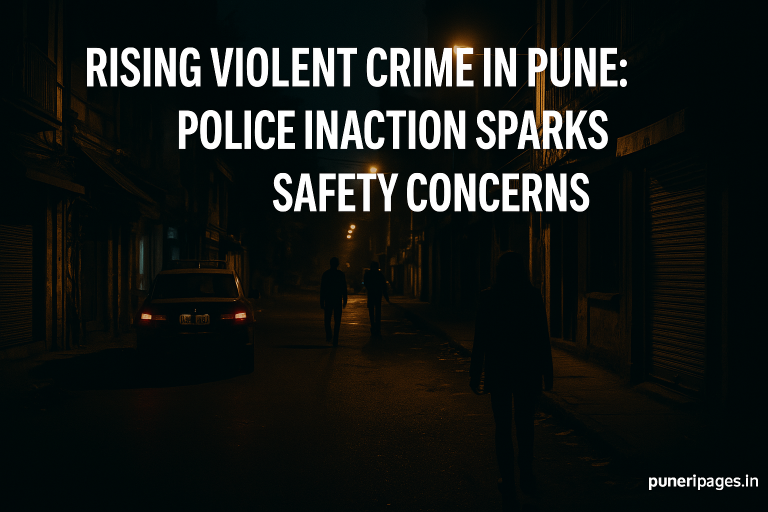
April 1, 2025 | Pune, India
Pune, often celebrated as the “Oxford of the East” for its academic legacy, is grappling with a darker reality—rising cybercrime. In a chilling recent case, a 63-year-old woman lost a staggering Rs 2.57 crore to a sophisticated scam known as a “digital arrest.” This incident, unfolding in the heart of the city, serves as a stark reminder of how even the savviest among us can fall prey to online fraudsters.
The Trap: A Call That Changed Everything
It started with a phone call—one that sounded official, urgent, and terrifying. The perpetrators, masquerading as law enforcement officers (possibly claiming to be from the CBI or Pune Police), told the senior citizen her bank account was linked to illegal activities, perhaps money laundering or a fabricated crime. Armed with fake FIRs and arrest warrants, they spun a web of lies so convincing that she believed her freedom was at stake.
What followed was a masterclass in psychological manipulation. Over a series of video calls, the scammers kept her “digitally arrested”—instructed to stay on the line, cut off from the outside world, and transfer funds to “clear her name.” They promised the money—Rs 2.57 crore, her hard-earned savings—would be returned once the “investigation” concluded. Spoiler: it never did.
The Fallout: A City on Edge
By the time the victim realized she’d been duped, the money was gone, likely siphoned through a maze of mule accounts. She approached the Pune Cyber Police, who promptly registered a case under the IT Act and IPC sections for cheating and impersonation. The investigation is ongoing, but tracking down the culprits—potentially operating from another state or country—remains a daunting task.
This isn’t an isolated incident. Pune has seen a surge in “digital arrest” scams, with losses running into crores. Just last December, a resident lost Rs 1.15 crore to a similar ruse. The city, home to tech hubs and retirees alike, is now a hunting ground for cybercriminals exploiting trust and fear.
Why Seniors Are Targets—and What It Means for Pune
Senior citizens like the victim in this case are prime targets. They may not be as tech-savvy, often have substantial savings, and are more likely to trust authority figures—a perfect storm for scammers. The sheer scale of this loss—over $305,000 USD—has sent shockwaves through Pune’s close-knit communities, sparking heated discussions online and offline.
Puneites are asking: How safe are we in this digital age? Once known for its serene campuses and IT prowess, the city now faces a paradox—its tech boom has a shadowy flipside. From WhatsApp groups to local chai stalls, the conversation is shifting toward cybersecurity awareness and protecting the vulnerable.
Staying Safe: Tips to Outsmart the Scammers
This heartbreaking case is a wake-up call. Here’s how you can protect yourself or your loved ones:
- Verify, Verify, Verify: No legitimate officer will demand money over the phone or video call. If someone claims to be from the police or a bank, hang up and call the official number yourself.
- Don’t Panic: Scammers thrive on fear. Take a breath, consult a trusted friend or family member, and never act in haste.
- Guard Your Details: Never share bank info, OTPs, or personal data with unsolicited callers—no matter how official they sound.
- Report It: If you suspect a scam, contact the police or the national cybercrime helpline (1930) immediately.
A Call to Action
The Pune Cyber Police are working tirelessly, but they can’t do it alone. Community awareness is key. Schools, colleges, and resident associations could host workshops—especially for seniors—to demystify these scams. Meanwhile, authorities might consider stricter regulations on mule accounts and faster cross-state collaboration to nab these faceless criminals.
For now, the victim’s Rs 2.57 crore loss is a painful lesson for Pune. It’s not just about money—it’s about trust shattered and a city’s innocence fading. Let’s turn this tragedy into a rallying cry: stay vigilant, spread the word, and take back control from the shadows of the digital world.
Have you or someone you know faced a similar scam? Share your thoughts below—we’re stronger together.




